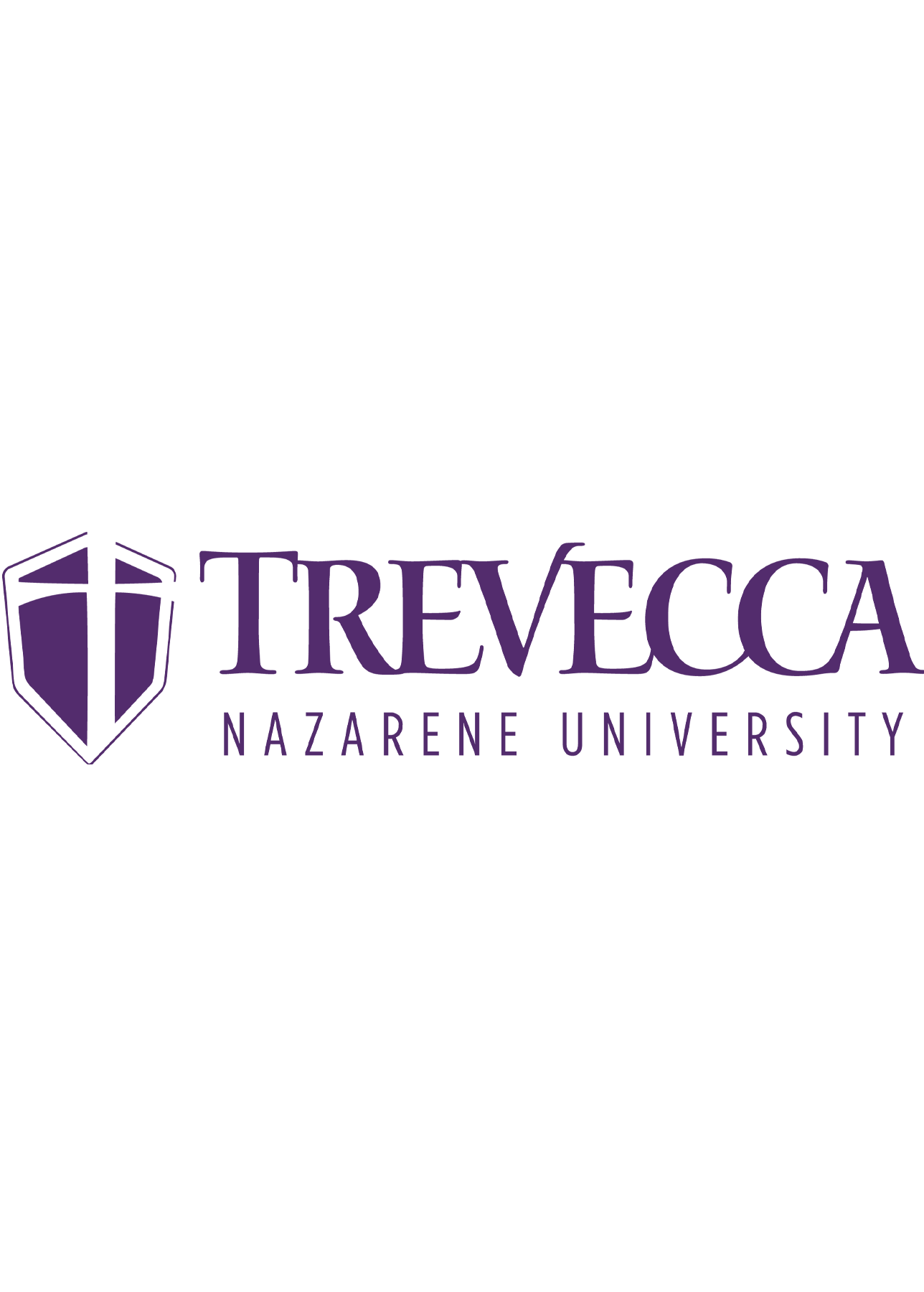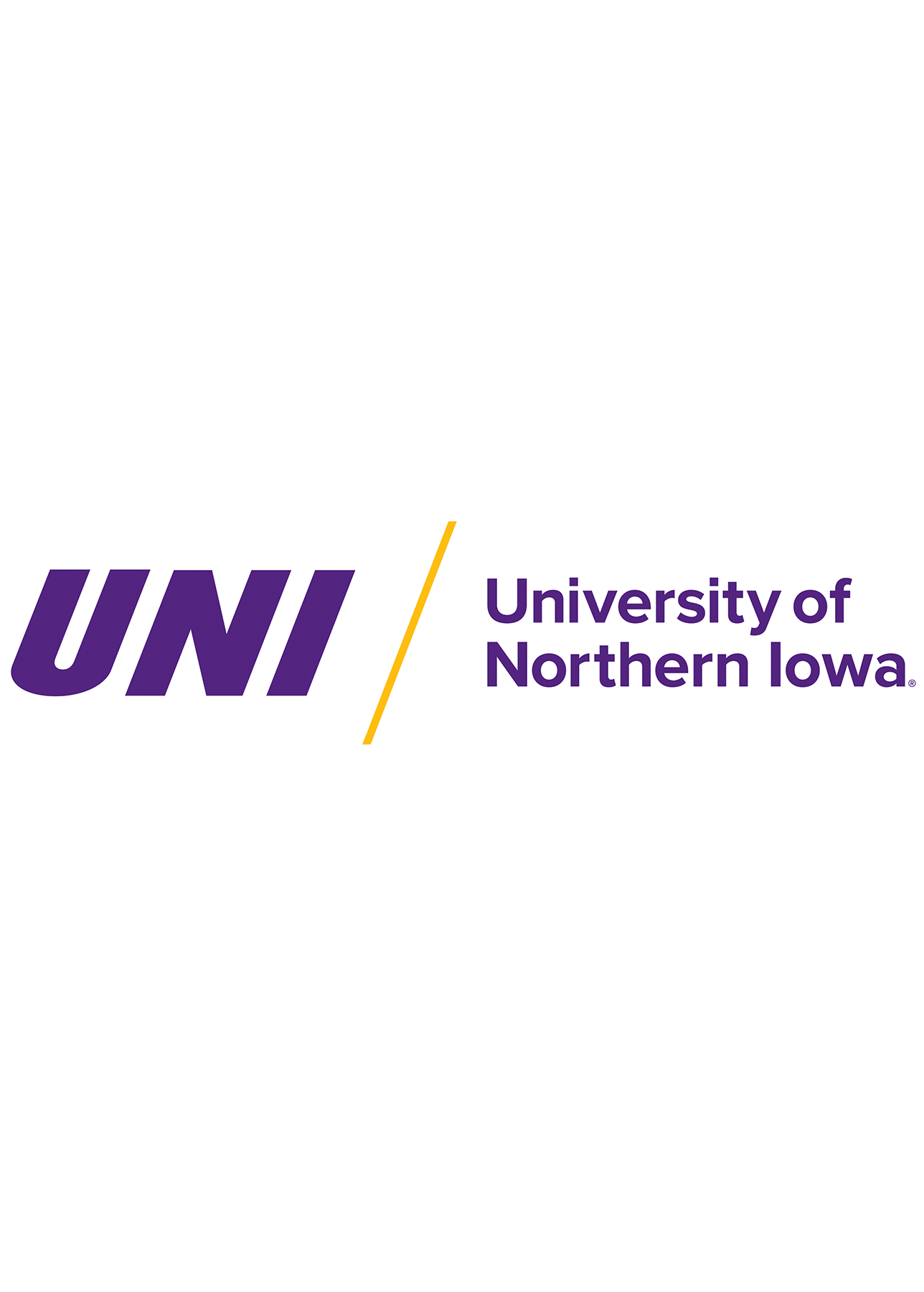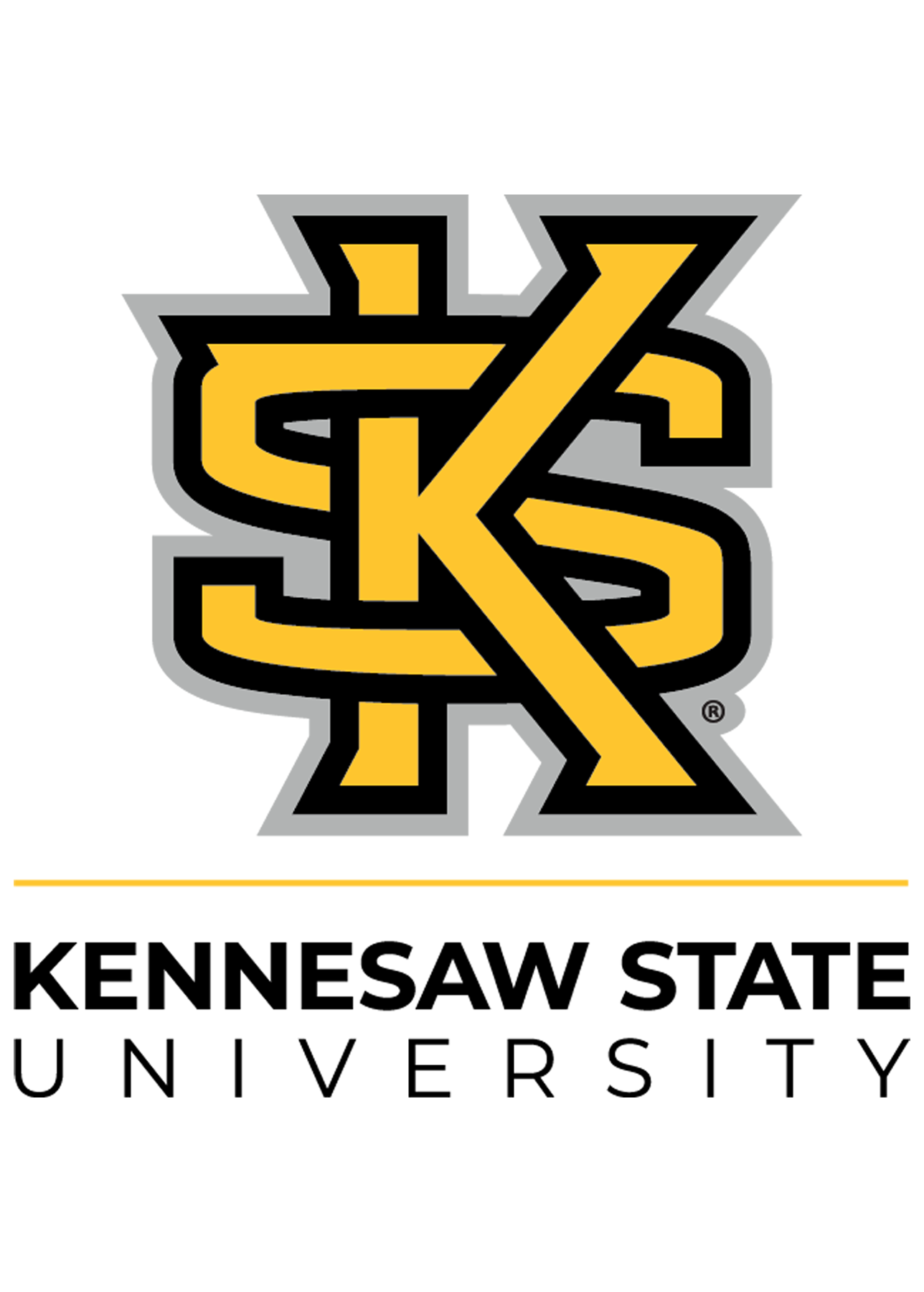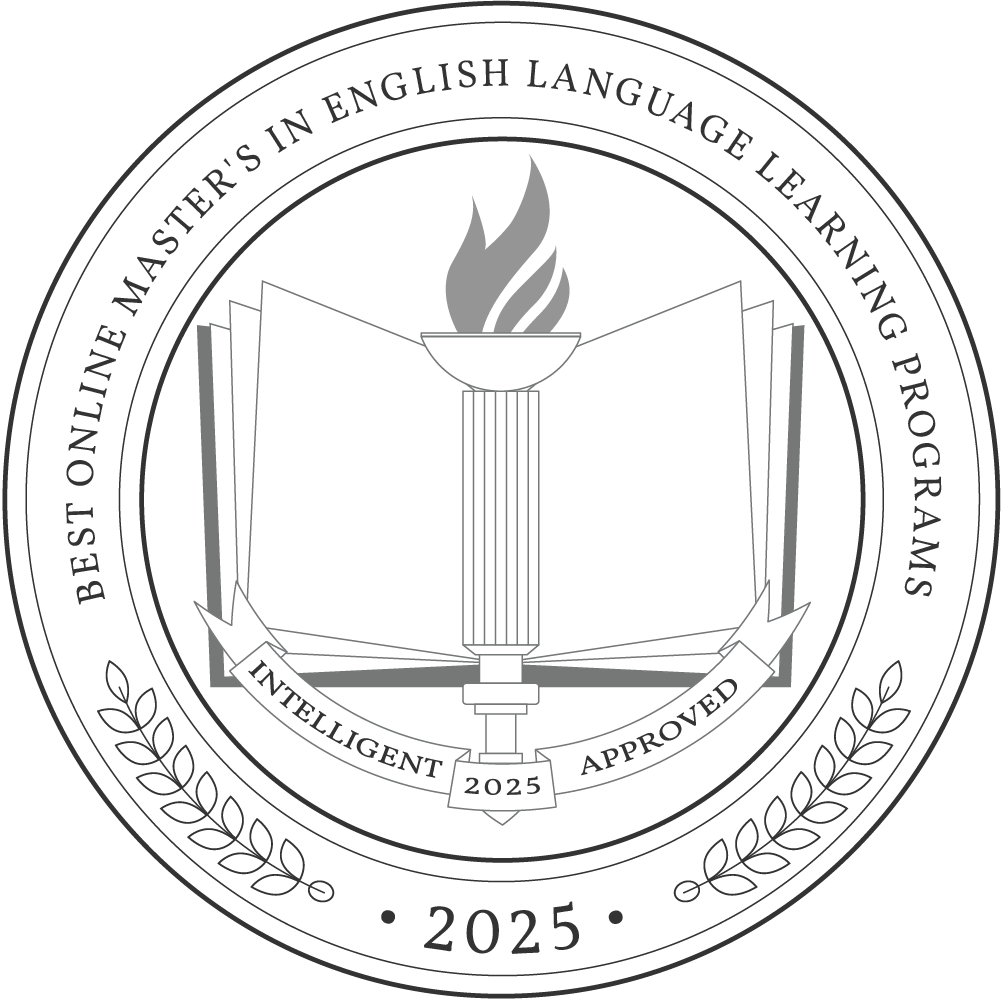Students who graduate with a master’s degree in English language learning are qualified to teach English to speakers of other languages. They can pursue careers as ESL teachers, instructional coordinators, interpreters, translators, and school counselors.
According to the Bureau of Labor Statistics, the median pay for ESL teachers is $60,560, while instructional coordinators make an average of $74,620. The average annual salary for interpreters and translators is $57,090. According to the National Center for Education Statistics, the average annual tuition for a graduate degree is $12,596 at public universities and $28,017 at private universities. Completing this degree takes two to three years of full-time study.
Why Trust Us
The Intelligent.com Higher Education Team is dedicated to providing students with independent, equitable school and program rankings and well-researched resources. Our expert-driven articles cover topics related to online colleges and programs, paying for school, and career outlooks. We use data from the U.S. Department of Education’s College Scorecard, the National Center for Education Statistics, and other reputable educational and professional organizations. Our academic advisory team reviews content and verifies accuracy throughout the year for the most current information. Partnerships do not influence rankings or editorial decisions.
- Analyzed over 2,000 national, accredited, and nonprofit colleges and universities
- 800+ rankings pages are reviewed and updated yearly
- Content is informed by reputable sources, surveys, and interviews with academic advisors and other experts
- Over 100 data points are reviewed for accuracy and quality throughout the year, including sources
How we rank schools
Our list features the best online English Language Learning degree programs at top colleges nationwide. Each school featured is a nonprofit, accredited institution — either public or private — with a high standard of academic quality for post-secondary institutions.
We evaluated each school’s program on tuition costs, admission, retention and graduation rates, faculty, reputation, and the student resources provided for online students. We collected data from trusted sources like the National Center for Education Statistics, individual school and program websites, school admissions counselors, and other data sources. Then, we calculated the Intelligent Score on a scale of 0 to 100 based on the following criterion:
Academic Quality:
- Admission rate versus enrollment rate
- Retention rate of students who return after year one
- Accreditation status (regional and programmatic)
- Nonprofit status, both private and public institutions
Graduation Rate
- Overall graduation rate
- Total number of currently enrolled students, including diversity metrics
- Student-to-faculty ratio
Cost and ROI
- In-state and out-of-state per-credit tuition rates and fees
- Required credits to graduate
- Earning potential after graduation
- Availability of federal student loans, scholarships, and other financial aid options
Student Resources
- Available student services for online-only and hybrid programs
- On-campus amenities like tutoring centers and the number of libraries
Read more about our ranking methodology.
Best 9 Accredited Online Master’s in English Language Learning Programs
FiltersInstitution Type
Status
- Intelligent Score
- Alphabetically By University Name
- Acceptance Rate
- Enrollment
- In-state Graduate Tuition
- Out-of-state Graduate Tuition
- In-state Undergraduate Tuition
- Out-of-state Undergraduate Tuition

University of Southern California
Intelligent Score: 98.98In-state: $59,260
Out-of-state: $59,260
In-state: $47,880
Out-of-state: $47,880
SAT: 1340-1530
ACT: 30-34
$2,201
Online
Council for the Accreditation of Educator Preparation
24

University of Maryland, Baltimore County
Intelligent Score: 97.86In-state: $8,824
Out-of-state: $34,936
In-state: $13,158
Out-of-state: $13,158
SAT: 1270-1480
ACT: 30-34
Resident: $742
Non-Resident: $1,274
Online, On-Campus, Hybrid
Council for the Accreditation of Educator Preparation
36-51

Trevecca Nazarene University
Intelligent Score: 95.85In-state: $25,998
Out-of-state: $25,998
In-state: $8,982
Out-of-state: $8,982
SAT: 1040-1253
ACT: 20-25
$435
Online
Council for the Accreditation of Educator Preparation
30

SUNY Brockport
Intelligent Score: 95.64In-state: $7,070
Out-of-state: $16,980
In-state: $11,310
Out-of-state: $11,310
SAT: 860-1060
ACT: N/A
Resident: $471
Non-Resident: $565
Online, Hybrid
Council for the Accreditation of Educator Preparation
30

University of Northern Iowa
Intelligent Score: 95.26In-state: $7,665
Out-of-state: $19,949
In-state: $9,159
Out-of-state: $9,159
SAT: 1030-1230
ACT: 20-26
$569
Online
Higher Learning Commission
33

University of North Carolina at Charlotte
Intelligent Score: 95.12In-state: $7,019
Out-of-state: $34,198
In-state: $10,552
Out-of-state: $10,552
SAT: 1280-1490
ACT: 28-33
Resident: $256
Non-Resident: $512 - $1,091
Online
Council for the Accreditation of Educator Preparation
30

Kennesaw State University
Intelligent Score: 94.72In-state: $4,450
Out-of-state: $15,704
In-state: $5,328
Out-of-state: $5,328
SAT: 1030-1200
ACT: 19-25
$383
Online
Council for the Accreditation of Educator Preparation
36

Southeast Missouri State University
Intelligent Score: 94.12In-state: $6,779
Out-of-state: $12,951
In-state: $5,373
Out-of-state: $5,373
SAT: N/A
ACT: N/A
$383
Online
Higher Learning Commission
33

Sam Houston State University
Intelligent Score: 90.25In-state: $5,856
Out-of-state: $15,672
In-state: $5,765
Out-of-state: $5,765
SAT: 970-1120
ACT: 18-23
$320
Online
Southern Association of Colleges and Schools Commission on Colleges
30
How to Choose an Online Master’s in English Language Learning Program
Choose your area of study
Since graduates of this degree program can pursue careers in different areas of English language learning, it is important to know what you’re planning to do after graduation. Programs may offer concentrations focusing on subjects such as literature, rhetoric and writing, and TESOL. Keep in mind that not all universities provide the same concentrations. Also, it’s important to look at what internship options and field experiences are offered as part of the program and if any are available in your area. These are usually required for this degree.
You also need to decide if you want a Master of Science (MS), Master of Arts (MA), or Master of Education (MEd). All will prepare you for a career in English learning, but they have different pedagogical approaches.
Research schools and programs
Once you’ve determined your area of study and which type of degree you want, start researching different schools and their programs.
You should only apply to institutions that have been approved by a DOE-recognized regional accrediting organization, such as the New England Commission of Higher Education or Northwest Commission on Colleges and Universities. These organizations evaluate schools to ensure they provide students with a high-quality education. Those who attend a school that isn’t regionally accredited may be unable to access financial aid or transfer credits to another institution if needed.
Ideally, your master’s in English language learning program will also be accredited by a respected industry group like the Council for the Accreditation of Educator Preparation (CAEP). This accrediting organization has particularly high standards for education-related programs.
You should also have a general idea of how much you can pay for your degree, so check the cost of each program before researching further. Don’t waste time looking into programs that exceed the amount you are willing to pay.
Although you’ll be doing the coursework online, the school’s location is still worth considering. If it’s not too far away, you can participate directly in on-campus orientations, student organizations and clubs, career fairs, and other on-campus events. Also, online programs are often offered with a hybrid option, so students can attend some classes in person if they like. If you’d like to take advantage of this, proximity to the school may be a factor in your decision.
To learn more about any schools that you’re interested in, you can visit the school’s website, contact an admissions counselor, follow the school on social media, or attend an in-person or virtual open house.
Prepare for tests and applications
Admissions requirements vary depending on the university and program, so check each school’s website. While some schools require that applications and related documents be submitted by a specific date, others offer rolling admissions. Depending on the university, online programs may or may not start at the same time as on-campus courses. Additionally, while entrance exams aren’t generally a requirement for graduate programs, some universities ask for GRE scores.
You may need to also submit additional materials, such as undergraduate transcripts, letters of recommendation, and a personal statement. Before submitting an application, always contact an admissions counselor to ensure you have the most accurate information regarding requirements and deadlines.
Select your program
Once you’ve done your research and have all the relevant information, it’s time to select your program. Look at the pros and cons of each one, and decide which factors are most important to you. Then, make a list, in order of preference, of all the programs that fit what you’re looking for. Apply to them all, as you don’t know what the responses will be.
Before making your final decision, review your needs and goals again. Do you plan to attend school full-time or part-time? Do you want your program to be as online as possible, or are you fine with a hybrid program that has a fair amount of in-person requirements? Some programs offer asynchronous courses, which can be completed at your own pace, while others only offer synchronous courses, which involve remotely attending lectures and completing assignments at the same time as other students — which of these two online learning formats do you prefer? Your school should accommodate your scheduling needs and learning preferences.
Determine how you’ll pay for your degree
Financial aid in the form of loans, grants, and work-study programs is offered by the U.S. government. To be eligible, you must submit the Free Application for Federal Student Aid (FAFSA).
You may be able to skip some courses if you have previously earned college credits that can be transferred. Military members, past or present, often receive discounted tuition. Beyond that, if you have time in your schedule, a part-time job can help pay for the program. Those who already work in the field should see if their employer offers tuition assistance benefits as well.
Be sure to speak to financial aid counselors at the schools you’re interested in for the most accurate and specific information about program cost.
What Can You Expect from an Online Master’s in English Language Learning Program?
This program focuses on how to teach English as a second language, including theory, methods, lesson planning, and how to work with and within different cultures.
In an online degree program, students receive their coursework via an online learning platform such as Canvas, Moodle, or Blackboard. Some schools have their own exclusive platform. Each student has an account and can access everything they need for the program online, including the syllabus, reading and audio-video material, recorded lectures, assignments, announcements, grades, and more. The platform includes online chats and message boards so students can communicate with one another as well as with instructors and professors.
Potential courses you’ll take in an online master’s in English language learning degree program
- Theories of second language acquisition. This course covers material in applied linguistics, such as grammar, syntax, morphology, and semantics. Students learn about dialect, how language is related to culture, and principles of first and second language acquisition.
- Structures of modern English. Students examine the structures of the English language, both written and spoken, and how to teach these effectively. Attention is given to grammar, syntax, and how written language differs from spoken language.
- Field experience. Most programs require field experience where students must spend a certain number of hours in a real-world teaching environment. This course covers how to assess students’ language levels, locate effective resources for teaching, and plan methods and lessons accordingly.
- Pronunciation. Pronunciation is often one of the major challenges for learners, and this course covers how to use phonology and phonetics to teach proper pronunciation. Students also learn how accents are viewed both in a societal and cultural context.
What Can You Do With an Online Master’s in English Language Learning Degree?
Career outlook
Students with an educational background in English language learning have the necessary skills to work in the education sector, whether as an instructor, in curriculum development, or as an administrator. Those with proficiencies in other languages can work as interpreters or translators in various industries, including healthcare, business, social services, and travel and tourism.
Here are some examples of potential career paths for English language learning degrees:
- Adult education or ESL teacher — Teach adult learners fundamental skills, such as how to read, write, and speak English.
- Median annual salary: $60,560
- Projected employment growth (through 2032): -13%
- New job openings projected: 4,200 annually
- Interpreter or translator — Convert information from one language to another. Interpreters convert spoken language, while translators convert written language.
- Median annual salary: $57,090
- Projected employment growth (through 2032): 4%
- New job openings projected: 7,200 annually
- Instructional coordinator — Develop, implement, and assess the effectiveness of educational materials.
- Median annual salary: $74,620
- Projected employment growth (through 2032): 2%
- New job openings projected: 19,200 annually
Online Master’s Degree in English Language Learning Frequently Asked Questions
How do I apply to an online master’s in English language learning degree program?
Applications can be filled out and submitted on the university’s website or mailed in. Most universities require a bachelor’s degree from an accredited institution. It may or may not have to be in a related field, and some schools require applicants to have a teacher’s license or prior teaching experience in ESL. Transcripts should be submitted, and there is usually a minimum GPA requirement, but this varies by school.
Along with the application, schools typically ask for a resume, one or more letters of recommendation, and a personal statement or essay. Many universities require proof of U.S. citizenship or residency, and if English is not an applicant’s first language, you should submit test scores proving English proficiency. For this degree, proficiency in a language other than English may be an additional requirement. Applicants should always speak with an admissions counselor before applying.
How much does an online master’s in English language learning degree cost?
A master’s in English language learning usually costs between $10,000 and $20,000 in total tuition, often accompanied by additional fees involving the technology and software used for online delivery. Services and books are generally not included in the tuition. Private schools are usually more expensive than public schools, though public schools tend to charge out-of-state students a higher tuition rate than in-state students.
How long does it take to earn a master’s degree in English language learning online?
Depending on the school, this program requires 30-39 credits and can be completed in two or three years with full-time study. Part-time options are available at some institutions, but there is almost always a limit — four or five years — to the time allowed to complete the program.
Is an online master’s in English language learning degree worth it?
Pursuing higher education is an investment, but earning a master’s degree is almost always worth it. Graduates with an online master’s in English language learning have the skills and training for a variety of positions, whether that’s working one-on-one with English language learners, providing interpreting services to organizations, or mentoring the next generation of ESL teachers.
One of the main benefits of an online master’s in English language learning degree is that it gives you direct experience with the remote learning environment. This gives you an advantage in working with international students via Zoom and other platforms and prepares you for a career in online learning.
Read More about Online Master’s in English Language Learning Degrees
Related Degrees
- Communications
- English
- Library Science
- Journalism
- English Language Learning
- Sociology
- Environmental Management
- Liberal Arts
- Social Work
- Anthropology

